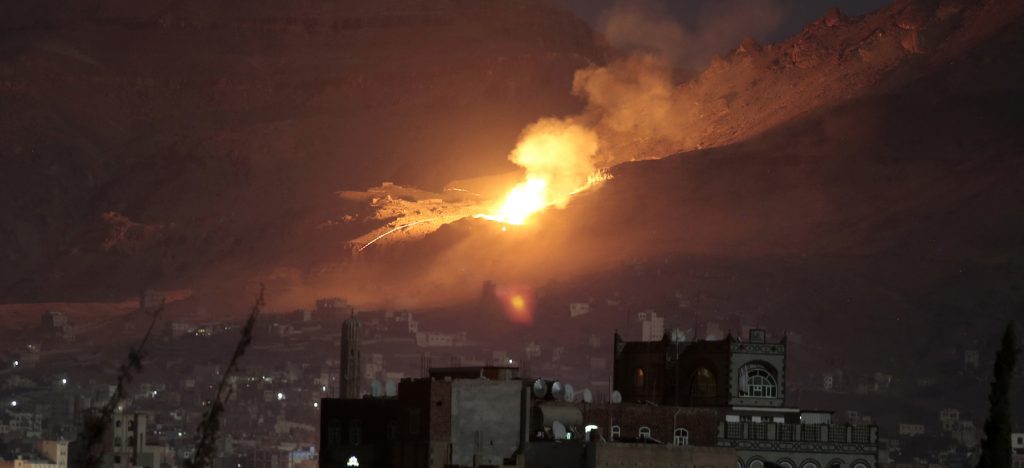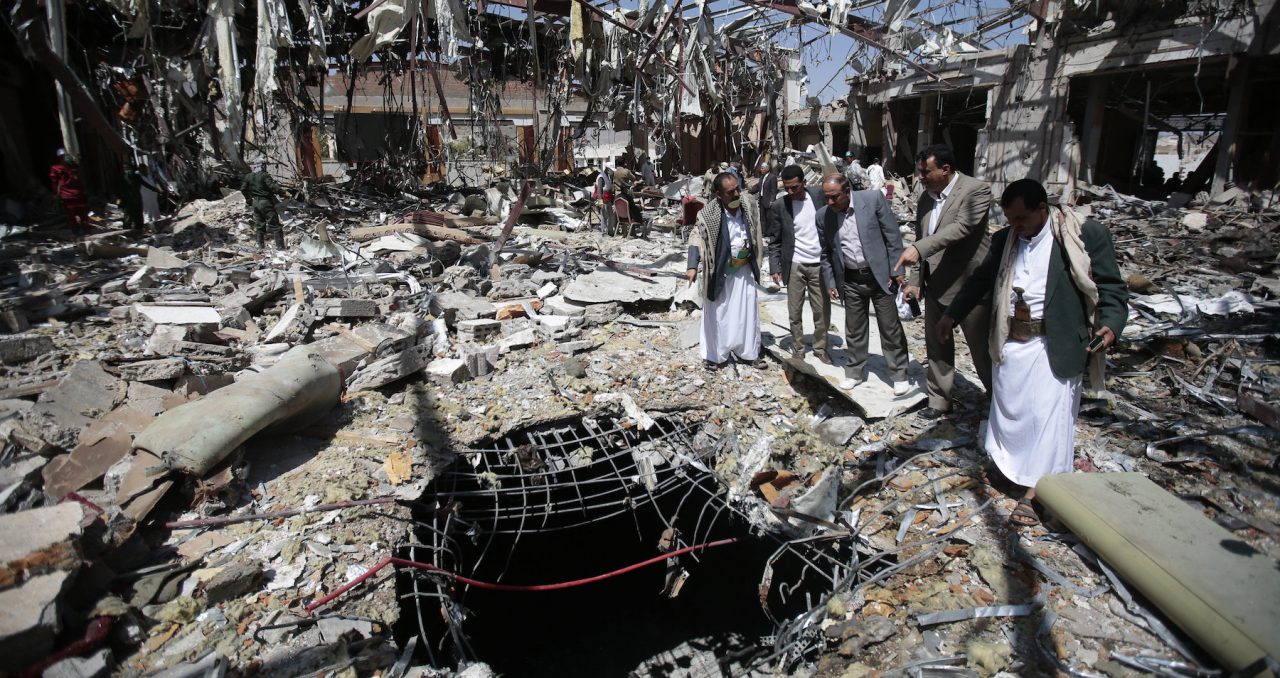Yemen is in the middle of a civil war. While bombs continue to fall, many people are questioning the role of the UK in supplying weapons to the region, saying this trade is fuelling the violence. But would the British government be willing to give up the arms deals that bring billions of pounds into the economy?
What’s been going on in Yemen?
Civil war broke out in Yemen in March 2015, after Houthi rebel forces kicked out the president and took control of the capital. In response, Saudi Arabia, who supported the ousted government, led a coalition of forces against the rebels, who have continued to bomb the country.
There’s now major humanitarian crisis. According to the UN, 21 million people in Yemen – that’s 80% of the population – are in need of life-saving aid, with no access to clean water, food or shelter. Oxfam says the country is on the brink of famine, and 3.1 million people have been forced to flee their homes.
So what does this have to do with the British economy?
Well, the UK has exported over £3.3 billion ($4bn) worth of weapons to Saudi Arabia in the last 18 months alone – the vast majority of which have been planes, bombs and missiles.
Pretty much every organization that comments on this kind of thing – the UN, the EU, Amnesty International, Oxfam, Human Rights Watch, and more – have said that the use of these weapons against civilians is breaking international humanitarian law. The Guardian recently reported that a third of the bombs dropped by Saudi Arabia have hit civilian targets. And it seems like things are only getting worse. Last week a bomb hit a funeral site in the capital city of Yemen, killing 140 and injuring over 500 people. So it seems that British weapons are being used in attacks that are breaking international law.
How is this allowed?
According to the Arms Trade Treaty, signed by the UK in 2014, it’s illegal to sell weapons when there’s a clear risk that they’ll be used in violation of international humanitarian law. But the UK government seems to be claiming there’s not enough proof to show that the use of these weapons are in violation of this treaty.
So why would the UK continue to sell arms despite the criticism of the UN, the EU, Amnesty International, Human Rights Watch, and many other respectable international organizations?
The answer is almost certainly to do with economics. The UK government has been very public about its support for the UK arms industry and the important role it plays in the UK economy. But just how vital is the arms industry to the UK?
1. The UK is the second biggest arms exporter in the world
The UK is the second biggest exporter of arms in the world, selling more weapons than Russia, France and China over the last 10 years. Last year, these exports amounted to £7.7 billion ($9.4bn) - more than they spend on higher education each year.
And there’s one thing that the UK loves to export more than anything else: military aircraft. So many planes have been sold to the Saudi government, that they actually now have more British planes than the British Royal Air Force.
The thing is, these military exports only make up a tiny 1.4% of total exports. So despite the international competitiveness of the arms industry, the idea that it is powering the UK export sector is perhaps a slight exaggeration.
2. The industry supposedly supports 300,000 jobs in the UK
A key justification for the arms industry is the number of jobs it creates in the UK.
But according to Campaign Against the Arms Trade, this 300,000 job figure is an overstatement. They argue that it includes 100,000 jobs which don’t have anything to do with making weapons, like utilities and estate management work. In most cases we don’t usually count these secondary jobs as part of the industry – if we didn't, the number of jobs created would fall to 170,000.
The 300,000 figure is also based on data from 10 years ago. No new data has been collected since, as the government has stopped counting the number of workers, convenient for the industry given the number of jobs has been going down ever since the 1980s.
It’s also important to remember that the biggest buyer of UK weapons isn’t overseas - it’s the British Ministry of Defence. So most of the jobs don’t actually have anything to do with selling weapons to people like Saudi Arabia. Even a lobby group for the arms industry, ADS, says that the number of jobs created by the arms export market is only 55,000, just 0.2% of the UK workforce.
3. Taxpayers subsidize the arms industry by £700 million a year
According to the Stockholm International Peace Research Institute (SIPRI), around £700 million ($851m) of taxpayers’ money is spent helping out the arms industry each year. The majority of this goes on funding research and development. But the industry also has its own government department of around 130 civil servants, whose jobs are simply to advertise and promote UK weapons abroad.
And the arms industry doesn’t just get financial support from the government. The Royal family and politicians travel around the world brokering deals on these companies’ behalf. Even conflicts in which the UK is directly involved, such as Syria, Libya, Iraq and Afghanistan, provide some of the best 'advertisements' for UK weapons. Deals have actually been signed because of the 'outstanding' performance of British planes in previous wars, creating a truly vicious cycle of conflict.
So where do we go from here?
But does it have to be this way? Behind the economics, political decisions are being made. Perhaps the support and subsidies given the arms industry could be used to support different industries and keep jobs in other sectors alive.
Unfortunately, Britain seems to be moving in the opposite direction. BAE, the UK’s largest arms company, is apparently in talks to sign off another billion dollar deal for more planes and bombs. The customer is Saudi Arabia. In fact, during the last six years the UK has sold weapons to 24 of the 27 states included on its own list of ‘countries of humanitarian concern’.
Whether further deals and the exports of arms can be stopped is a political battle, which is currently being fought in the courts, in the media and on the streets. On the one hand are clear moral arguments. On the other is hard economic logic. It’s hard to say which side will win.
But one thing seems certain: the business model for the UK arms industry requires ever more frequent conflict across the world, for that’s the only way it will continue to make a killing.





